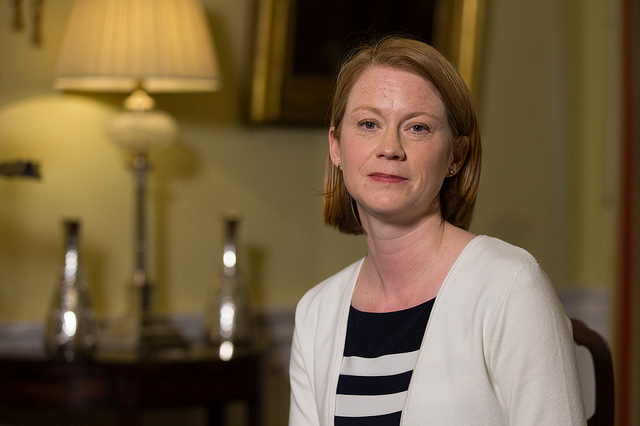Families of more than 327,000 young people helped by Scottish Child Payment

Cabinet secretary for social justice Shirley-Anne Somerville
The Scottish Child Payment was helping the families of more than 327,000 children at the end of December last year, official statistics have shown.
The £25-a-week payment helps families as part of a wider package of Scottish Government actions to tackle child poverty and support people during the cost of living crisis.
The figures published yesterday show more than 4,000 extra children were being supported since the previous quarter - the fourth consecutive rise.
Scottish Child Payment launched in February 2021 and it has since risen in value twice – firstly from £10 per week to £20 per week then, in November 2022, to £25 per week.
At the time of the second rise, it extended from being a payment for the families of children under the age of six to all those eligible under 16.
It is the families of that older group of children who have driven the latest increase in uptake.
The total overall amount paid out since the payment was launched passed £573.2 million.
Official statistics on Social Security’s other family payments – Best Start Foods and the three Best Start Grants (Pregnancy & Baby Payment, Early Learning Payment and School Age Payment) were also published yesterday.
Since first launching in December 2018 until December 2023 471,670 applications for the payments have been processed and a total of £145.4m paid out.
Cabinet secretary for social justice Shirley-Anne Somerville said: “Despite cuts to Scotland’s budget, the Scottish Government is prioritising support for families.
“Our investment in the game-changing Scottish Child Payment and other benefits is unparalleled in the UK.
“It delivers a lifeline from the Westminster austerity agenda and continued cruel policies, such as the two-child cap.
“These statistics show that we are reaching more of the people who most need our support as we continue to make tackling child poverty our key mission.
“It is encouraging to see that we are also continuing to do that more quickly, making progress in the time it takes from receiving applications to getting money into people’s pockets.”









